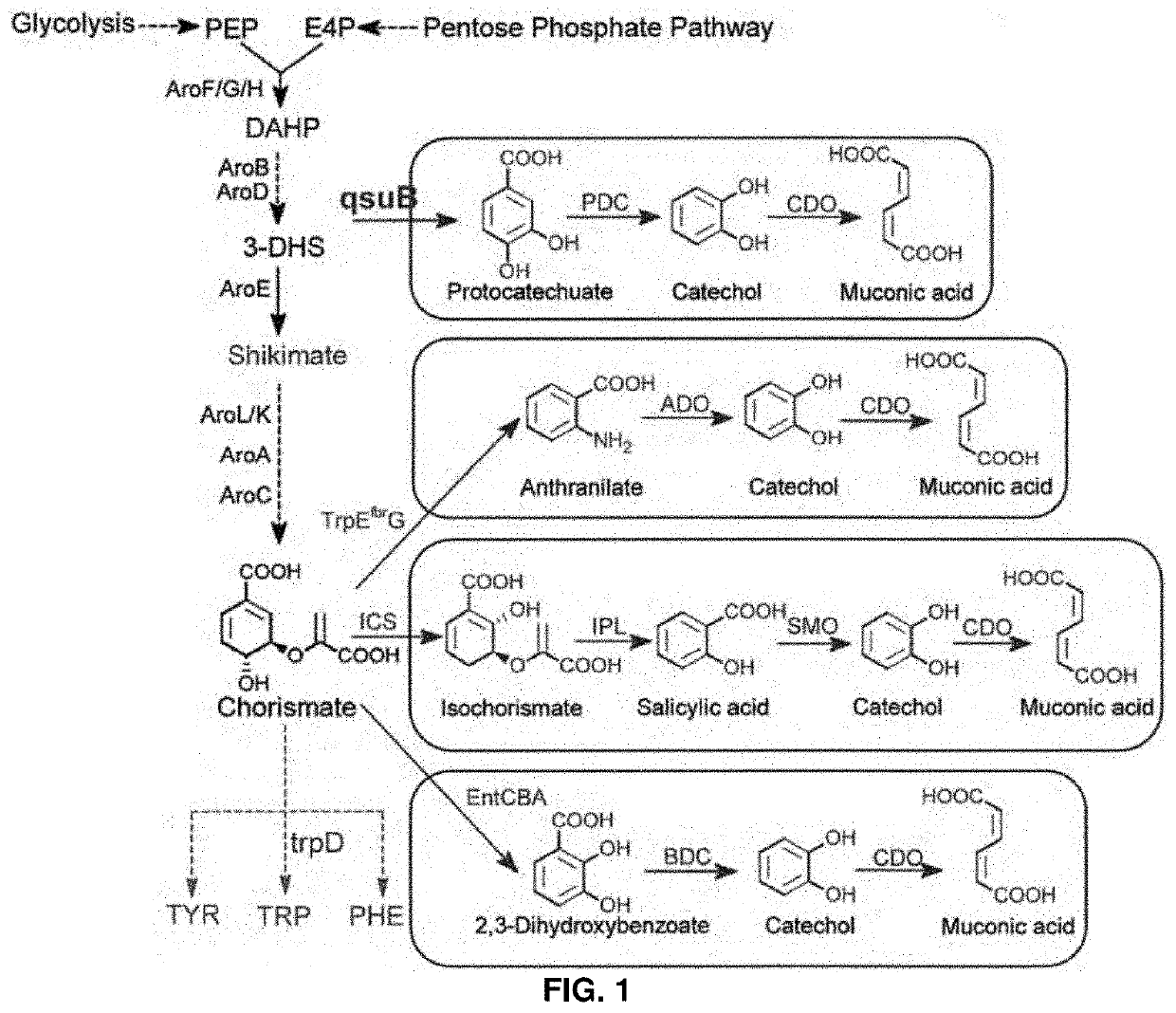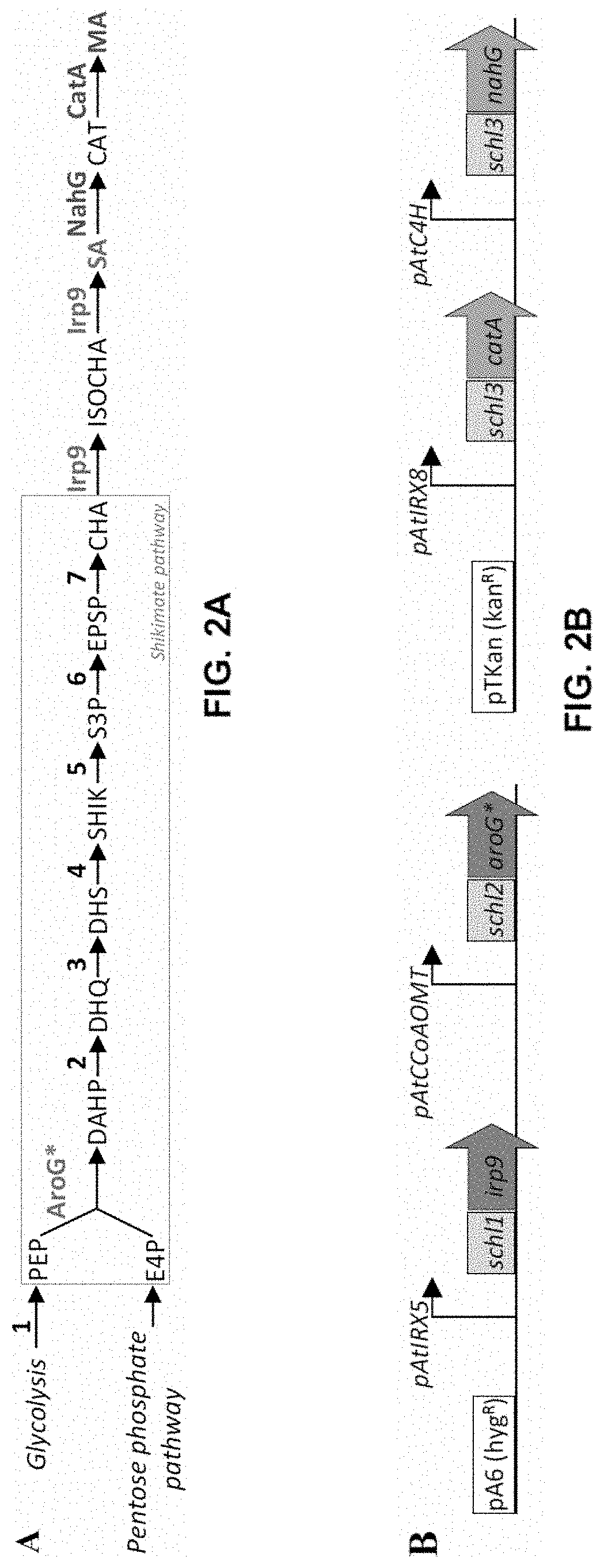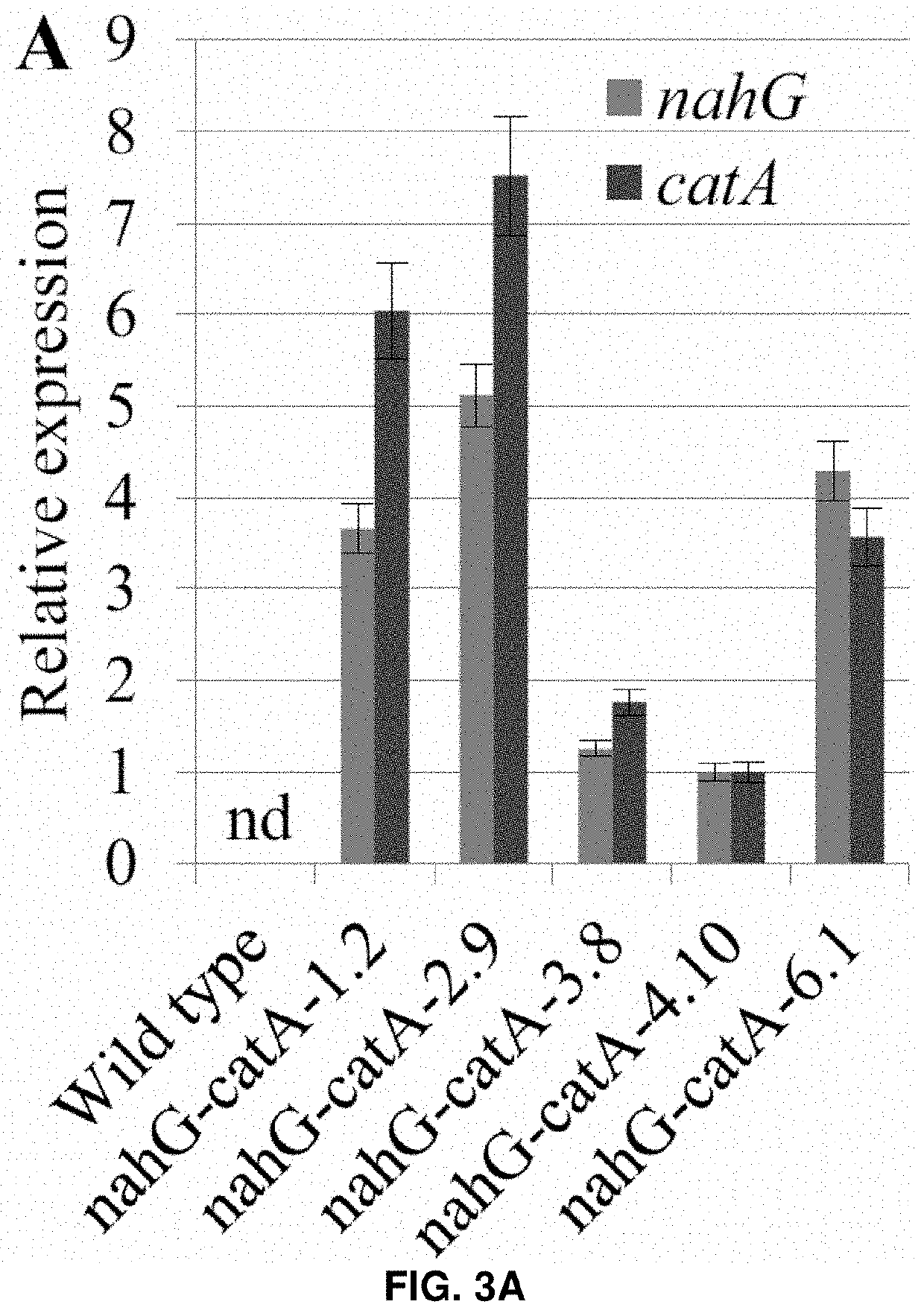Novel plants and methods for producing muconic acid
- Summary
- Abstract
- Description
- Claims
- Application Information
AI Technical Summary
Benefits of technology
Problems solved by technology
Method used
Image
Examples
example 1
Production of Muconic Acid in Plants
[0065]Muconic acid (MA) is a dicarboxylic acid used for the production of industrially relevant chemicals such as adipic acid, terephthalic acid, and caprolactam. Because the synthesis of these polymer precursors generates toxic intermediates by utilizing petroleum-derived chemicals and corrosive catalysts, the development of alternative strategies for the bio-based production of MA has garnered significant interest. Plants produce organic carbon skeletons by harvesting carbon dioxide and energy from the sun, and therefore represent advantageous hosts for engineered metabolic pathways towards the manufacturing of chemicals. In this work, we engineered Arabidopsis to demonstrate that plants can serve as green factories for the bio-manufacturing of MA. In particular, dual expression of plastid-targeted bacterial salicylate hydroxylase (NahG) and catechol 1,2-dioxygenase (CatA) resulted in the conversion of the endogenous salicylic acid (SA) pool int...
PUM
 Login to View More
Login to View More Abstract
Description
Claims
Application Information
 Login to View More
Login to View More - R&D
- Intellectual Property
- Life Sciences
- Materials
- Tech Scout
- Unparalleled Data Quality
- Higher Quality Content
- 60% Fewer Hallucinations
Browse by: Latest US Patents, China's latest patents, Technical Efficacy Thesaurus, Application Domain, Technology Topic, Popular Technical Reports.
© 2025 PatSnap. All rights reserved.Legal|Privacy policy|Modern Slavery Act Transparency Statement|Sitemap|About US| Contact US: help@patsnap.com



